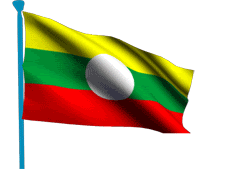NASDAQ – Myanmar: the coming investor paradise?
After decades of ruthless and oppressive leadership, Myanmar’s (Burma’s) ruling military junta is all of a sudden increasingly willing to modernize and liberalize its laws governing both its people and its economy.
In the past year, President Thein Sein’s government has undertaken a serious commitment to reform , including the release of hundreds of political prisoners and ending high profile democracy-advocate Aung San Suu Kyi’s 30-year house arrest.
These reforms are not confined to the political sphere; newly proposed economic reforms by Thein Sein’s administration will attempt to catalyze Myanmar’s stunted growth. As outlined by the Financial Times , new economic initiatives include:
“provisions for foreign businesses to set up in Myanmar without local partners, as previously required; government guarantees against nationalisation; easing of restrictions on private land use and repatriation of profits; and a five-year tax exemption for foreign companies.”
Further, the government will start a “managed float” of the nation’s currency – the kyat, starting April 1, in order to both gain control over the troubled currency and instill confidence for potential foreign investors.
Unlike previous, disingenuous reform rhetoric that went nowhere, these attempts to change Myanmar for the better are proving to be legit. The international diplomatic community has strongly approved of President Thein Sein’s liberalization, evidenced by Secretary of State Clinton’s late-fall visit to Myanmar , the first by an American Secretary of State in over 50 years.
Diplomatic approval is important for American investors in order to gain access to Burma; the U.S. government first has to repeal the sanctions that prevent American investors from putting new capital into Myanmar. With Norway removing its investment restrictions in January, and the European Union strongly considering repealing their economic sanctions , it’s reasonable to assume the American government is strongly mulling the possibility too.
In terms of development, due to the aforementioned sanctions, the nation has fallen far behind neighbors India, China, and Thailand. However, because it sits at a crossroads of major 21st century powers, its potential for growth is enormous.
With its abundant natural resources and unspoilt landscapes, Myanmar could become a hub for oil and gas, transportation, and tourism – and a boon for investors.
Because of the embargo, no Burmese stocks trade on U.S. exchanges.
Investors looking for exposure to neighboring countries in southeast Asia that will benefit from Myanmar’s liberalization can look to country-specific ETFs such as those for Vietnam ( VNM , quote ) and Thailand ( THD , quote ).
Thursday, March 22, 2012
NASDAQ – Myanmar: the coming investor paradise?
Posted by
Mai Soong Kha
at
6:51 PM
![]()
Labels: Maisoongkha, Myanmar business news, Myanmar news, News
Subscribe to:
Post Comments (Atom)




No comments:
Post a Comment